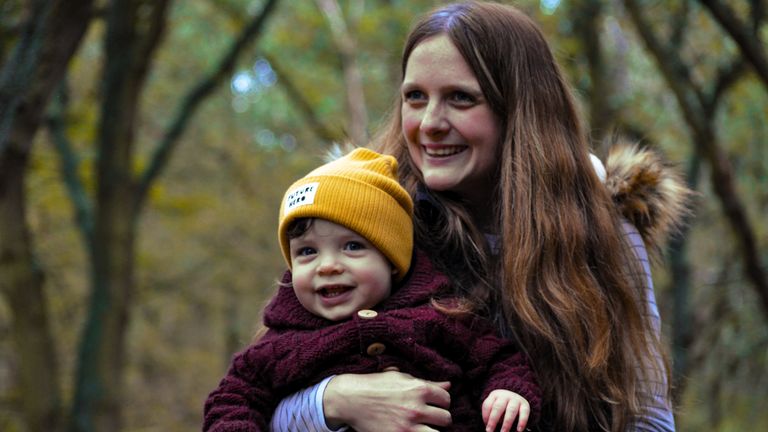[ad_1]
Two sisters who “wonder how long they will be alive” have told of their “truly devastating” struggle living with a medical condition so rare only 200 people have been diagnosed worldwide – and which has already claimed the life of their elder sibling.
Verity Grainger, 32, and Zillah Scorer, 39, are among just four people in the UK known to have mitochondrial neurogastrointestinal encephalomyopathy (MNGIE) which blocks the production of a certain enzyme and is causing their bodies to “slowly degenerate”.
MNGIE is a rare recessive genetic disorder which occurs when an individual inherits the same abnormal gene for the same trait from each parent.
Their 42-year-old sister Gail Pearson died from the same illness in January 2021 – and now the Hertfordshire family is facing a race against time to raise £500,000 for trial treatment in an attempt to save Verity and Zillah’s lives.
The family is the only one in the UK known to have seen three members diagnosed with the same life-shortening condition – and has spoken exclusively to Sky News about their “ongoing trauma” marking the first time both sisters and the parents have shared their “devastating” story.
Verity was diagnosed with the condition in 2016 after years of extreme pain and has a two-year-old son, Noah, who she fears she will not see grow up. Her elder sister died during the COVID pandemic without the family being allowed to be with her in “those final moments”.
She said: “For me, January 2021 was the moment I had the harsh reality of what living with MNGIE really meant, the truly devastating consequences of fighting this disease without any medical support.
“Losing my sister in the middle of a pandemic, during a period of shielding and as a new mum, was truly life-changing.
“Gail to me was so much more than just a big sister, she was a second mum, role model, inspiration and a best friend.
“We didn’t just lose her, but we were not able to see her in those final moments. I used to look at her and think ‘it’ll be ok’ – then I really realised it wouldn’t.
“I have just so many reasons to keep fighting, keep pushing in the hope that my story will stand a chance in being different to Gail’s, that I might grow old with my wonderful husband, that I might watch my son grow up and thrive.”
‘Will I be alive for retirement?’
Around £100,000 of the family’s £500,000 target has been raised to secure enzyme replacement treatment as Zillah and Verity continue to fight symptoms such as inflammation, vomiting and extreme stomach cramps.
Zillah said living with MNGIE means “you have your ups and downs on a daily basis” and feels like she spends “all your time eating and drinking just to get the calories into your body”.
But she added: “If I look forward to retirement and old age, I wonder will I be alive at that age to enjoy it? Should I get my funeral plans sorted as I might die much sooner? Should I get my will sorted out?
“For my mental wellbeing I tend not to look that far ahead as the worry makes you forget to enjoy what the present day has brought you.
“I have to take each day as it comes as you never know what your body can handle.”
Parents Frank and Margaret Pearson said they are in “a club that no one wants to belong to” having seen one of their children die so young – and how a “peculiar gene” now threatens the lives of their two other daughters.
Their son, Owen, 42, is their only child who does not have the condition – Zillah and Gail were both diagnosed shortly after Verity.
Mr Pearson said: “MNGIE is so rare because both parents have to have the same peculiar gene and then it only affects the next generation and no one else, including myself and my wife.
“If either of us had chosen another spouse, then MNGIE would have been absent from both our lives.
“However, this would not have helped Gail, Owen, Zillah or Verity as they would have had no life at all.”
Mrs Pearson added: “Those of us who have lost a child whether in the womb, at birth, through cot death or childhood illness, by an accident or deliberate intent, or even as an adult – it makes no difference. The child you loved and cared for is no longer there.
“For us we had the love and support of family and friends. We speak of our daughter, Gail, often and with laughter and with thankfulness.
“You are allowed to be sad, of course, but you are also allowed to enjoy the future.”
A JustGiving fundraising page has been set up, which has seen online donations climb to above £60,000.
[ad_2]










